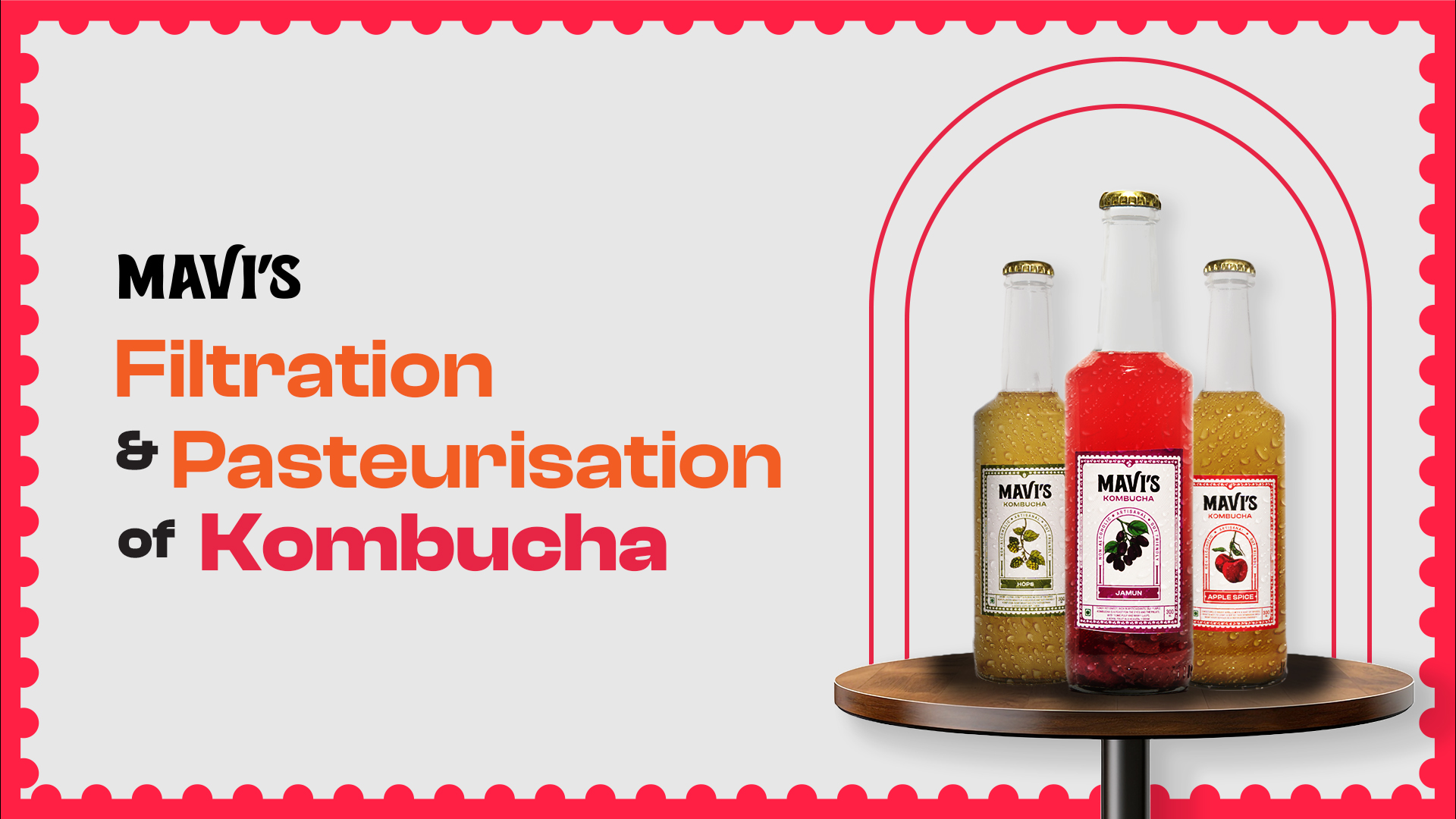Fermentation is the oldest technique of food preservation which not only saves food from rotting but also increases its nutritional value.
FILTRATION and PASTEURISATION are ways to eliminate bacteria, yeast, sediments, suspended particles, etc. to make a clearer and more consistent shelf-stable product. Almost all of our food products are filtered and pasteurized in order to provide consistent and neutral-flavored food. But pasteurization and filtration may have a negative effect on a lot of food that we consume, as it removes essential nutrients and imparts harmful chemical residue to the food.It also enables substitution by cheaper products to reduce costs.
Effects of pasteurization on kombucha
Named after Louis Pasteur, Pasteurisation is a process of treating food with heat usually less than 100°C to kill the germs and microbes in order to make it less hazardous for human consumption and enable us to be able to store it longer.
Kombucha is produced by fermentation of sugared tea using a symbiotic culture of bacteria and yeast. The living bacteria are probiotic, one of the reasons for the popularity of the drink.
The yeast in the kombucha produces the food for bacteria during the fermentation process. The bacteria then go on to produce healthy acids, enzymes, vitamin B-12 etc. along with Carbon-di-oxide which makes the kombucha fizzy. Pasteurising it would kill all the probiotics that were the essential elements of the kombucha.
And as a result, the drink will lose all its health benefits.
Effects of Filtration
Almost every beverage or food product in the market is filtered at different stages to increase its shelf life. The fermentation itself is the oldest technique of food preservation. It can be done to remove sediments, wastes, microbes, or other components that can grow and multiply during normal storage at ambient temperature.
Kombucha is made from fermenting different tea sugar and other natural ingredients.
The bottle of kombucha contains the fermented product which has lots of good bacteria, in essence, Probiotics, which give kombucha its health benefits by producing healthy acids, enzymes, and vitamins B-12 & C.
The sediments in the bottle contain yeast, bacteria. and fruits are broken down by bacteria which are good for health. Filtration eliminates all the residue making kombucha lose all its benefits.
Any raw kombucha should not be filtered or pasteurized to maintain its authenticity. Raw kombucha is a healthier option overall due to its probiotic benefits.
We at MAVIs avoid filtration and pasteurization in the production of kombucha to bring you great taste and guilt-free indulgence as we refrain from messing with the nature and health of your body, as your health and wellness are our priority.

